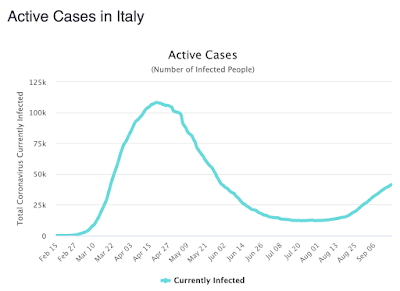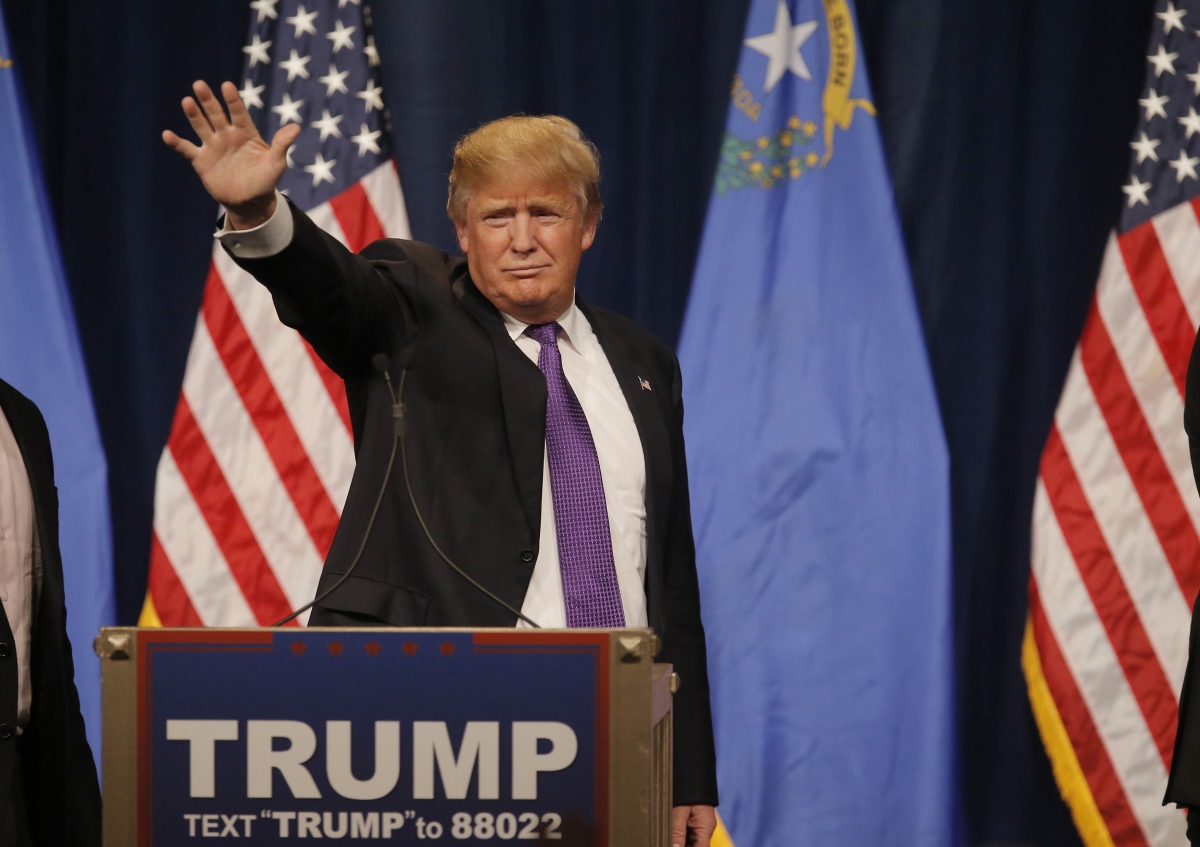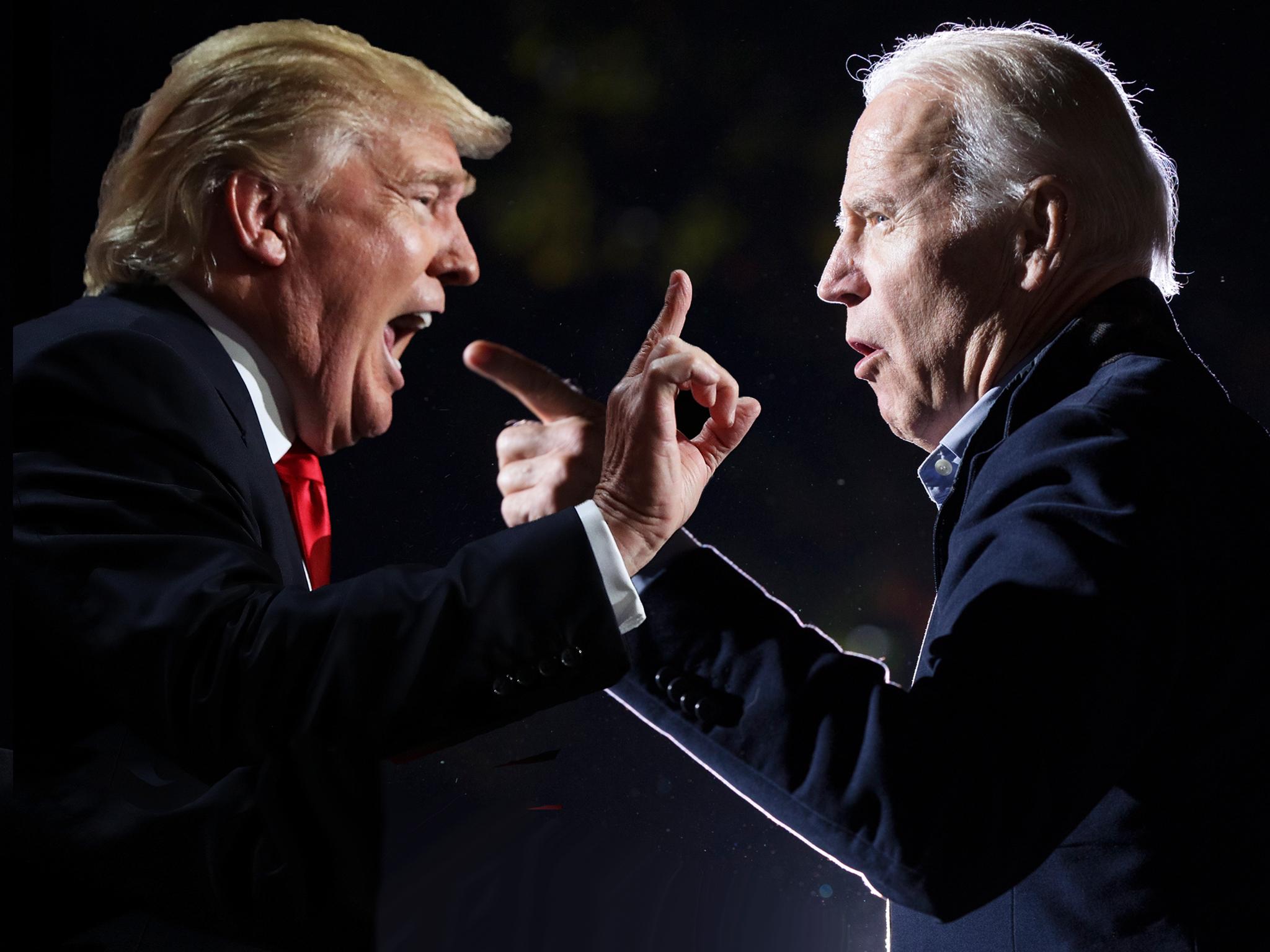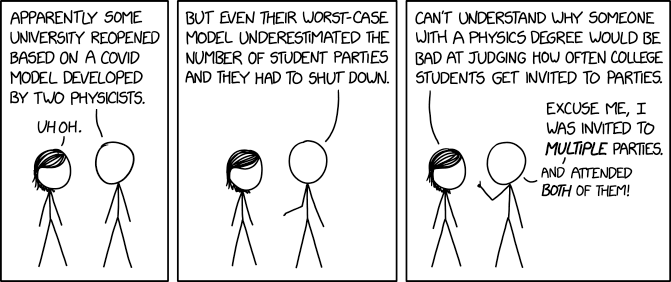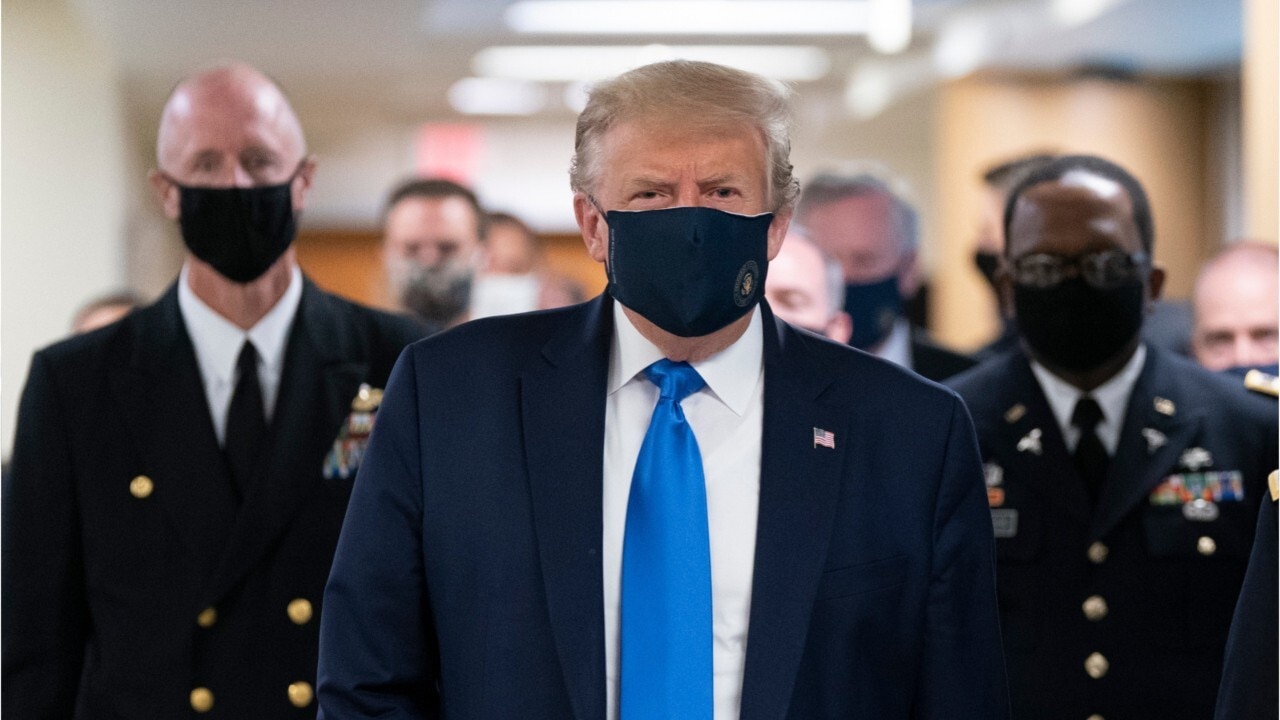Saturday, September 26, 2020
Coronavirus Newsletter - The Simplicity
Thursday, September 24, 2020
Who's Really to Blame for Trump's Election?
Saturday, September 19, 2020
Coronavirus Newsletter - Churches
I've seen this meme and several variations floating around ... basically, why is it safe to go shopping, but not safe to go to church?
Sunday, September 13, 2020
Trump vs. Biden: My Vote
- impose penalties on refugees who entered illegally in search of asylum if they present themselves without delay (Article 31), which is commonly interpreted to mean that their unlawful entry and presence ought not to be prosecuted at all;
- take exceptional measures against a refugee solely on account of his or her nationality (Article 8);
- forcibly return or "refoul" refugees to the country they have fled from (Article 33). It is widely accepted that the prohibition of forcible return is part of customary international law.
If a city or state refuses to take the actions that are necessary to defend the life and property of their residents, then I will deploy the United States military and quickly solve the problem for them.
I am mobilizing all available federal resources — civilian and military — to stop the rioting and looting, to end the destruction and arson, and to protect the rights of law-abiding Americans, including your Second Amendment rights.
Saturday, September 12, 2020
Coronavirus Newsletter - Schools
General Update / 90% Too Sensitive? / Colleges / High Schools / Conclusions
Today, let's talk about schools, but first ...
General Update
The numbers continue to go down! This is great. It appears that the masks are working.
All summer long, the growth rate itself of new cases and deaths has been lower when compared to growth rates at the very beginning of the pandemic. I think this is because of the warmer weather. But even with the slower growth, the base of actives at the beginning of this 2nd wave that hit "everyone but NY" was very high, so the actual counts of cases and deaths have been just as high as they were in the 1st wave.
As the 2nd wave is nearing an end, one big fear is that the colder weather could bring on a major resurgence in COVID-19 cases, and together with the onset of our next flu season, it could bring a major stress to our hospitals ... everywhere. The best way we can fight this is to keep working hard to get the base of active cases down even more. We've just started to go down from our high of a week ago. The lower we get it over the next couple of weeks, the better a fall/winter we're going to have.
So, keep wearing those masks, keep washing your hands, don't crowd, cooperate with contact tracers, keep working from home if you can -- if we all cooperate now the base will continue to drop dramatically and we can actually get this thing over with much sooner.
The NY Times Map shows a better situation overall for our country. There are still splotches here and there. Illinois and Missouri still look bad, as do western Tennessee and eastern Georgia. South Dakota and North Dakota had major increases (and just after how much they bragged about how well they did without locking down).
90% Too Sensitive?
Okay. Before we turn to schools, we need to clear something up. There's a NY Times article making a lot of traction lately -- basically a left-leaning newspaper published a health article saying that coronavirus tests are too sensitive. So, right-wingers have been using this article to say a lot of crazy things that the article just isn't saying. Click here for the article.
Perhaps later I'll come back and give this article more time, but as it relates to the school discussion, today I want to focus on the 90% number floating around.
The idea of the article is that there are too many false positives because dead virus fragments, or insufficient amounts of virus, are causing positive results when they should really be negative. These are people who are unlikely to be contagious at the time of testing.
Unfortunately, the article said this:
In three sets of testing data that include cycle thresholds, compiled by officials in Massachusetts, New York and Nevada, up to 90 percent of people testing positive carried barely any virus, a review by The Times found.
On Thursday, the United States recorded 45,604 new coronavirus cases, according to a database maintained by The Times. If the rates of contagiousness in Massachusetts and New York were to apply nationwide, then perhaps only 4,500 of those people may actually need to isolate and submit to contact tracing.
The first paragraph is fine, but the second paragraph is a common mistake of logic. So bad that I must say: Apoorva Mandavilli, give me your wrist. Bad bad! Slap!
To see the error of this logic ... how about we extend it to today's USA numbers? 6,636,247 total would mean 663,625 real cases total, but with deaths at 197,421, that would give us a 30% death rate? That doesn't sound right. (Note that once it gets to death -- we're usually pretty sure by that time that COVID really is involved.)
Where did Mandavilli go wrong? Look at the states she mentioned. Both Massachusetts and New York were hit hard by the virus early on, and Arizona got hit heavier later, but its population is small compared to Massachusetts and New York.
This means that a large chunk of the tests coming in lately from those states are likely to be re-tests from those who are seeing if the virus has left. In other words, the long-haulers, who are known to have dead remnants of the virus causing lingering symptoms, but who are also known not to be contagious.
So, no ... you can't transfer that 90% number to "new" cases ... not at all.
This is important to realize because when schools opened up, our country-wide New Case counts stalled briefly in their downward trend. Cases were popping up in noticeable clusters at several campuses and high schools, and not because of insufficient virus ... but because of super-spreader events. In other words, we can tell by the pattern of the spreads that these people are contagious. We can even trace it to parties that were held in late August, and there are several reports of students being sick -- though usually not so serious as to require hospitalization.
For the rest of this discussion, we can just throw out that 90% or 10% number. It's just wrong.
Colleges
Today you'll see a few articles from the New York Times. This is mainly because I think they're doing a good job compiling the data and putting together some nice dashboards. I may not agree with all their conclusions, but it's interesting stuff.
Several colleges have opened up their campuses. Some have kept the virus at bay while others haven't been doing quite as well.
You can check out how each school is doing by visiting this NY Times School Dashboard. Look at the map to see how each school is doing by color. And you can scroll down to your state to get a running total of cases reported at each school (though some numbers may be delayed).
In my city, Wake Forest is up to 56 cases. To get a sense of how they're handling the virus, you can check here. I also hear that Wake Forest is working with nearby hotels to help spread out the students living in on-campus housing. I present this as a school doing an okay job fighting the virus.
And then there's UNC, which as per the dashboard is up to 1,152 cases. Yeah ... whoa Nellie! And get this ... when the school saw that things were getting bad, they basically closed up on-campus housing and sent everyone home ... even the sick people.
This seems to be normal among several other colleges ... sending home sick students home so that they can all infect people at home and in transit.
The good news is that any bump from this new vector -- so far -- looks to be small. The schools just had to learn the hard way that opening campuses without proper preparation doesn't work so well, can lead to increased cases, and then infect the surrounding communities and contribute to more deaths.
BTW, xkcd ventures a guess as to why an optimistic model on schools turned out to be so wrong ...
High Schools
You can check out this NY Times Safe Schools Dashboard, which tries to show which areas are likely to be safe for opening up schools. It also shows some interesting stats. According to the map, it claims that my county of Forsyth should be safe to open up elementary schools, but not high schools yet.
I believe part of this is based on studies similar to the South Korea study showing that kids in the 10-19 age range are just as likely to spread the virus as adults are. And sure enough, we've seen several reports of immediate spread in the first week of high schools opening up, often resulting in moving studies back to remote.
These children have a much lower incidence of death, but can still be a vector, bringing home the sickness to their more susceptible parents and grandparents.
That same study seemed to indicate that kids in the 0-9 age range do not spread the virus as much, and thus the reason why elementary schools may be able to open sooner.
My child's high school is still holding remote classes. She really misses in-class learning, being with friends, and marching in the band. Though, with football season being moved to the Spring, there's hope that she may still get in some marching this school year. BTW ... I think marching itself could be quite safe, being outside and all, however inside practices could spread the virus as well as possible crowding in the stands.
Many have pointed out that schooling from home can be detrimental to the child's learning, and I can see why. It would be good to find any way to get them safely back to school.
BTW, you can keep up with developments among high schools across the states in this impressive database being maintained by the NEA. It attempts to report case counts and death counts (if any) from each individual school. Just look up your state and see if there are any reports for your school. (Note: if your school is remote, there's unlikely to be any reports yet.)
Conclusions
These younger students are less likely to die, but they can still get sick, and can still spread the virus, even if asymptomatic. Schools can be safely reopened if there is adequate preparation, cleaning, contact tracing, low-enough new case volume in the surrounding community, mask-wearing (for now), distancing, adequate ventilation inside, washing hands frequently, etc. Schools that fail to do this will spread the virus and/or end up closing. Those who succeed can enjoy having the students return safely.
I am happy to see overall counts dropping, so perhaps by January we can get our kids fully back in school. If we work hard now to keep counts low in the upcoming dangerous fall/winter months, it could help our kids get back to school much sooner.
Saturday, September 5, 2020
Coronavirus Newsletter - Trump's Report Card
General Update / Trump: What He Did Right / What He Did Wrong / Final Grade / What About Biden?
Yes ... I know that the virus doesn't care about politics, and yes ... politics should be entirely separate from the virus. After all, the virus only cares about lungs and nom nom nom, whether we be Republican, Democrat, white, black, Asian, gay, straight, devout Christian, Muslim, atheist, or whatever.
But unfortunately if there's anything 2020 has taught us is that politics can and does determine how successfully the virus can spread. Some policies give the virus more lungs to infect, and some policies do a better job at protecting people.
So now we'll take a good look at how Trump has done, and give him a grade for his biggest test of his career.
But first ...
General Update
Deaths are slowing down, and New Cases are showing the very first signs of starting to speed up again. Worldwide, several countries in Europe are seeing resurgences. Brazil and Peru seem to be the most ballistic at the moment.
In the US, it looks like it's time for the midwest to have their turn at being the center of attention. The south is still trying to go down in counts, though my state of NC continues to struggle because of school outbreaks.
I guess that's all I got right now for updates ... so ...
What Trump Did Right
Next we must all realize that most everyone who is passionate about this subject wants the best for the people of the United States.
We may all disagree as to the best strategy. On one end of the spectrum, some believe that not even a single person should die from this disease, so we must all lockdown until it's all over in 4-6 weeks. And on the other end of the spectrum, some believe that we should ignore the virus, change no habits, and let our healthy immune systems take care of it.
However, we have a long history of pandemics, and other lesser breakouts. We have knowledge, experience, and experts who dedicate their lives to learning and stepping in to protect people from these sicknesses. These experts keep up to speed on the differences and similarities between outbreaks, and believe it or not, there are more similarities than differences, and thus we are able to use time-tested strategies.
For example, we know that universal mask wearing is effective with SARS coronaviruses, but not so much with influenza. We also know that identifying exposed people and quarantining them is very effective with practically all outbreaks, which means testing and contact tracing are vital to success. Lockdowns are only supposed to be used in emergency situations where other methods fail.
So, what about Trump?
I think he actually started out strong. At the end of January, he instituted travel restrictions against most parts of China. And he also instituted heavy quarantine measures on anyone exposed to the virus, while his opponents accused Trump of being racist or xenophobic. At the time, it seemed that Trump was the one overacting (good), and the Democrats were mocking him. (Though, isn't it funny that the Democrats are silent on all the countries that now have travel bans against us at this time?)
It was clear in early February that Trump did not want this virus in our borders, and I believe that his actions did indeed delay the spread of the virus for about a month compared to Italy and Spain whose cases shot up like a big explosion. Later in mid March, he increased travel restrictions to include most of Europe. He also instituted a 15-day "Slow the Spread" campaign encouraging social distancing and no groups larger than 10 people.
As the disease progressed late March/April, Trump (eventually) made sure there were plenty of supplies for New York, and he also mobilized military personnel to assist and set up makeshift hospitals to handle overflow. He also provided daily coronavirus briefings to keep the states informed on the latest developments.
In early April, Trump announced Operation Warp Speed, an effort to expend resources in an attempt to speed up the development of a safe vaccine against COVID19, though it's unclear to me how much this has helped the three vaccines currently in Phase 3 trials.
Up until this point in April, it really looked like Trump was mostly sincere about the fight against the virus, but then as soon as cases and deaths started to go down, he just seemed to stop caring.
What Trump Did Wrong
Despite the evidence that Trump tried to fight the virus through April, he wasn't consistent. From the beginning he wasn't perfect, though I'd say his handling was average through mid-April. He could have acted faster, pushed the "Slow the Spread" two weeks earlier, helped to push more testing earlier to help identify and quarantine.
The earlier containment strategies weren't the best. My favorite story was when our administration decided to rescue Americans off of the Diamond Princess mid-February. They loaded up a couple buses with everyone who had tested negative for the virus. But as they approached the planes, word came out that 14 of the passengers just then tested positive.
And remember what the rescuers did? They decided to go ahead and bring the sick people home. The 14 were placed at the very back of the plane with a plastic sheet to separate them from the rest of the non-infected passengers. Oopsies! Nom nom nom!
And as usual, Trump has been inconsistent throughout the whole epidemic with his tweets and strange utterances. For example, as early as March 9, he tweeted some stats from Fox News:
"So last year 37,000 Americans died from the common Flu. It averages between 27,000 and 70,000 per year. Nothing is shut down, life & the economy go on. At this moment there are 546 confirmed cases of CoronaVirus, with 22 deaths. Think about that!"I think this confused the general public. People did think about it, and they resisted safety protocols.
When Trump was pushing hard for the drug HCQ, and immediately after, there was an uptick in poison calls from people ingesting a fish chemical with a similar sounding name. And when Trump talked about detergents, again there was an uptick in bleach poisoning.
It all just shows how influential utterances from the President can be. It's part of the job, so when Trump shows that he personally can't take the virus seriously, it inspires practically all of his base to likewise not take it seriously -- and the result? More spread of the virus. Nom nom nom.
One day Trump says, "You should be wearing masks," and then the next day, he can't be caught dead wearing a mask, and even goes so far as to imply that NOT wearing a mask is showing support for himself. Even a couple of days ago in a rally in Pennsylvania, Trump again mocked Biden for wearing a mask everywhere he goes, and how stupid he looks.
So -- which message are we supposed to believe? The one where Trump is serious and says, "Wear your mask"? Or the one where he's joking around and saying, "Masks are stupid"? When provided with two conflicting messages, the general public is going to pick the one they want to hear most. (Nom nom.)
If it were just saying stupid things and being a little lax at the beginning, I could probably cut Trump some slack, but this is not all.
In mid-April, when Trump was hoping to reopen the economy by Easter, even though the base of Active Cases was still very high, he first indicated that he was going to force every state to reopen. But then the very next day he said he was going to leave it up to the states' governors to decide how to best reopen. But then again the very next day after that, in response to some lockdown protests, he tweeted on April 17:
LIBERATE MICHIGAN, LIBERATE VIRGINIA, LIBERATE MINNESOTA.This wasn't just saying something stupid, but rather a direct attempt to incite an insurrection against the very governors he purported to be free to proceed as they saw best. And ever since then he has been openly critical about "liberally run" cities and states that are slow to reopen ... even threatening to cut funding on schools that don't resume in-person schooling.
If anything, after mid-April, Trump has shown an enormous and complete lack of support in the efforts of local states and cities to do what it takes to eradicate the virus, which in and of itself contributes to the spread of the virus. Nom nom nom nom. Yeah.
And ... this is very important to understand ... I know why Trump is doing this. It all started mid-February when the global stock markets crashed. The market was his pride and joy, knowing that if the stocks are down, so are the chances of his reelection. That's when he started painting more of a rosy picture ... when he went from overreacting to under-reacting ... (and incidentally about the same time the liberals started taking it more seriously -- except for Pelosi?).
So, he has been downplaying the virus for months now, just so the markets can come back up and save his election. In other words, he has been choosing to take these actions to benefit himself ... not to save you and me from the virus, but to make the numbers look good for his chances. Don't believe me yet?
Just look at his campaign trail of death. In June, he held a rally in heavily-infected Tulsa, OK. Free masks were available on request, but everyone got the message -- if you truly support Trump, don't wear the mask. The organizers of the event negated their agreed-upon safety precautions by removing safety tape from social-distancing empty chairs so the participants would be allowed to cram together.
Trump knows that a well-attended rally drums up support, so he wasn't going to let a non-existent virus stop the perception of a lively event. Again, more proof that his own reelection was more important than the safety of the people. During the rally setup, several of Trump's staff -- organizers and secret police -- caught the virus, and a noticeable surge hit Tulsa shortly after. It was about the same time that Herman Cain caught the virus and subsequently died. He could have also picked up the virus at any of the other events held in Arizona and elsewhere that week.
At the Republican Convention in Charlotte, reports are already coming in of virus spread during the event. I haven't heard anything yet from the DC gathering for Trump's acceptance speech, but just give it time. Again ... trying to ignore the virus doesn't stop it from munching on lungs ... nom nom nom.
Also recently, Trump has added a new member to his coronavirus task force -- not an epidemiologist, but rather a radiologist? He doesn't know much about epidemics, but he sure knows how to pretend to know, and had been quite loud on Fox News. Trump liked what he saw, so he welcomed Dr. Scott Atlas on board. Evidently, he has been instrumental in pushing for some of the more recent policies to downplay the virus. It's almost as if the Emperor with the New Clothes desired to hire someone to tell him that he indeed is wearing clothes.
Dr. Atlas, it seems, was the one who recently forced the CDC to announce the guideline that asymptomatic people no longer need to get tested, even if exposed to someone with the virus. Seriously? Nom nom nom.
https://www.nytimes.com/2020/09/02/us/politics/trump-scott-atlas-coronavirus.html
And this will be my last observation in this section. The CDC is a federal department that reports to the President. As such, Trump has corrupted guidelines and instructions issued from the CDC. The one I just mentioned above was one instance -- one in which the Director Redfield was vehemently opposed.
Another case involved guidance removed from the CDC guidelines for reopening churches. The CDC had a paragraph warning against the dangers of singing in church, being proven to be superspreading events. Evidently the Trump administration had the paragraph removed because of concerns that it might be seen as trampling on First Amendment religious rights. (Nom nom nom.)
https://www.npr.org/sections/coronavirus-live-updates/2020/05/29/865324310/cdc-quickly-changed-its-guidance-on-limiting-choirs-at-religious-services
Final Grade
There is so much "little" evidence against Trump, I'm struggling to bring it all together into this one blog post. All you have to do is open up the news and you can see the latest and greatest tactic Trump is using to promote himself over the safety of his constituents. Yet, the most interesting thing is that his base can't see any of this. Trump can do no wrong.
But to tell you the truth, even now I could delete that whole last section above and just present the following evidence, and by itself it would be enough to condemn Trump -- it would condemn any leader of any country that had the results you're about to see.
For months now, I've been tracking the total COVID deaths per million for several countries. This is much more appropriate number to track than total Cases reported or even total Deaths. Seeing it on a per-capita basis takes care of the issue of the US having a relatively large population. And Death counts are much more accurate than Case counts -- the last of which depend on testing, which rates vary between each country.
My source comes from the data at this website: https://www.worldometers.info/coronavirus/
And here is what my latest compiled graph looks like:
He also evidently has a 8-step plan that he says will reopen the nation safely.
https://joebiden.com/reopening/#
I definitely prefer his proposals over Trump's plan (wait -- does Trump even have a plan?). But some items on his list might be a little overkill, and I really think we could benefit from the Google/Apple automated contact tracing app -- it could really save us a lot of time and help the human contact tracers.
And as I said before, the trifecta of masks / testing / contact tracing are together what get the best results in the most successful countries. Biden's plan almost sounds like that.





